“R U OK?”: 5 Reasons Why It’s Hard For Us to Say We Aren’t
Title: “R U OK?”: 5 Reasons Why It’s Hard For Us to Say We Aren’t
Artwork by: YMI x @verses_illustrated
Description: “R U OK?”
Those three little words asked out of concern by a friend, colleague, or a family member can sometimes make us a tad nervous.
We’re touched that they’ve checked-in on us, but we aren’t sure how to respond.
“If we admit we aren’t okay, would that make us a failure? That we’re mentally unstable?” we think.
There can be a host of reasons why we’re afraid to admit that we need help, and we want you to know that it’s okay to admit you’re not okay.
Every part of our wellbeing–including our mental health–matters greatly to God. So let’s break down the barriers that often stand in the way of us seeking help, and ask God to give us the humility and faith to bring our struggles before Him.
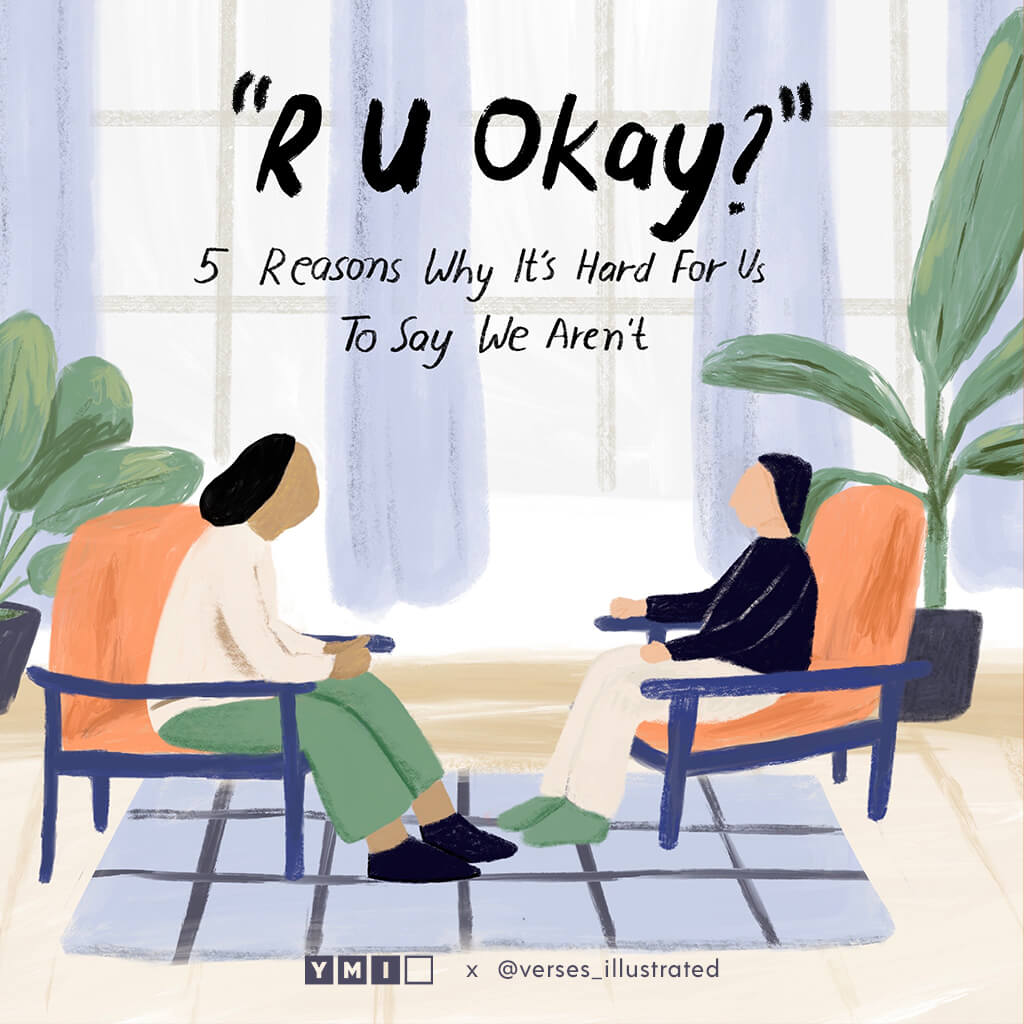

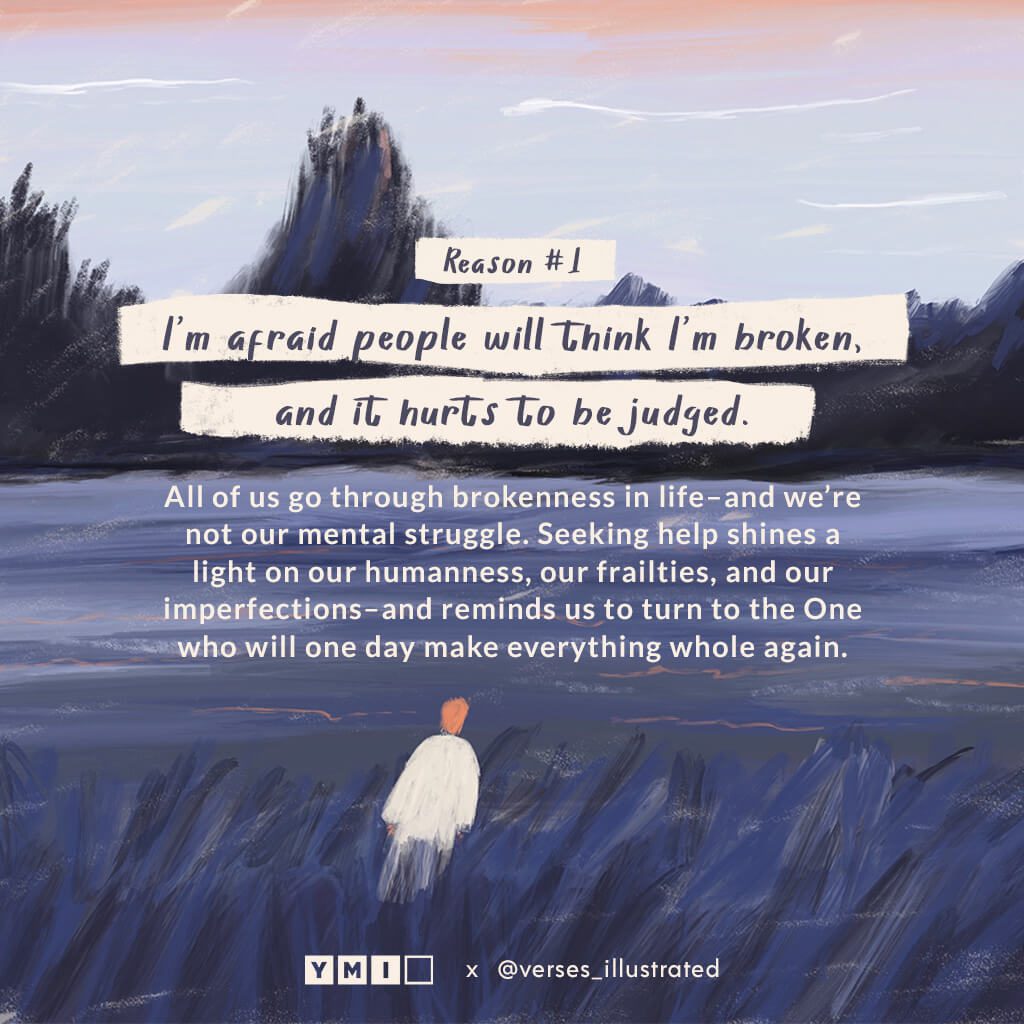
Maybe we’re afraid that if we seek help, others will see us as “broken” or as a “psycho”, and it hurts to be judged.
We live in a broken world because of sin, and this results in brokenness and fractures in our lives. And this brokenness manifests itself in different areas of our lives, whether it’s physical, emotional, or mental.
Seeking help for our mental health struggles doesn’t make us “broken”. If anything, it shines a light on our humanness, our frailties, and our imperfections–and reminds us to turn to the One who will one day make everything whole again.
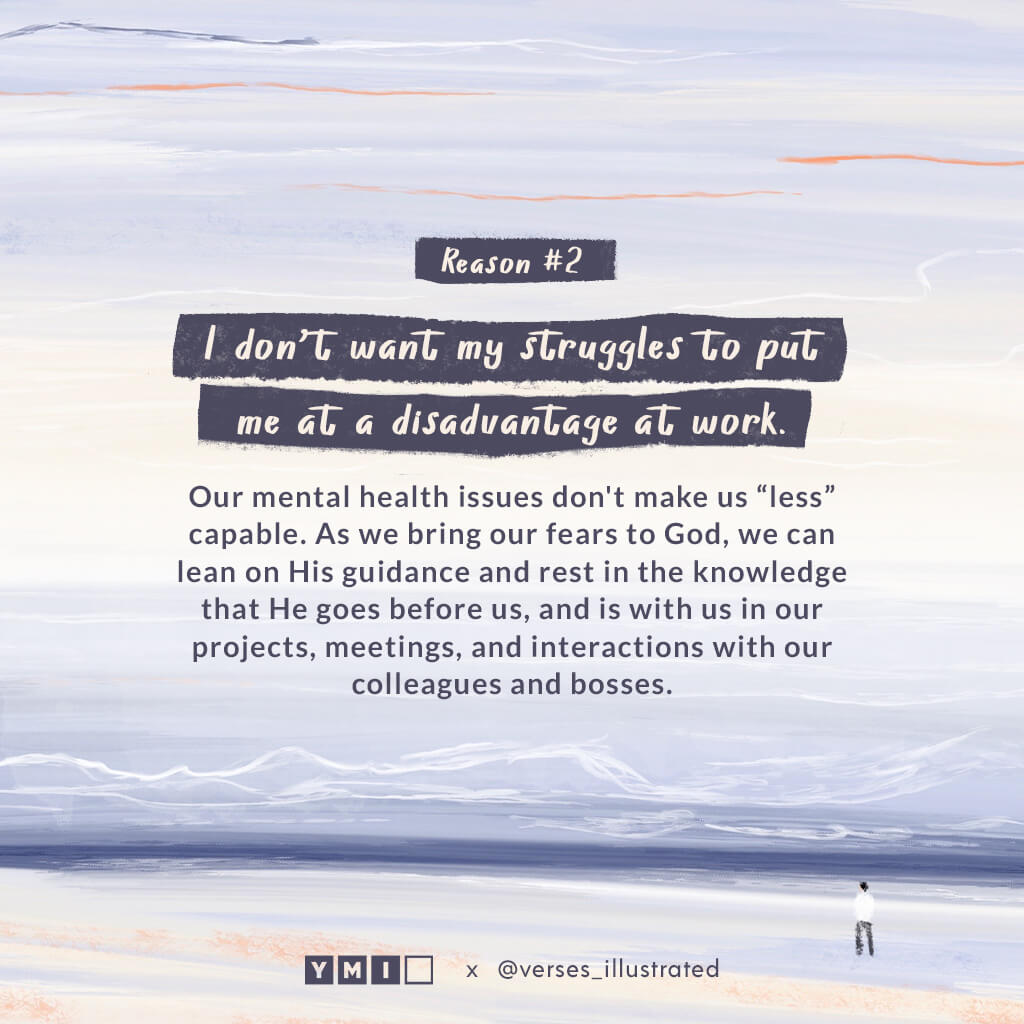
We’re afraid to be seen as “less than” because it could mean we’d be given fewer opportunities and responsibilities at work, or people wouldn’t entrust us with tasks as they deem we cannot be “trusted” to complete what we’ve been given.
But just because we’re struggling with a mental health issue doesn’t make us any “less” human. Instead, let’s bring our fears to God and lean in on His wisdom to guide and lead us in all areas of our work. He goes before us, and will never leave nor forsake us (Deuteronomy 31:8). He’s with us in our projects, meetings and interactions with our colleagues and our bosses. He will help us through any challenges we might face at work, and establish the work that we do.
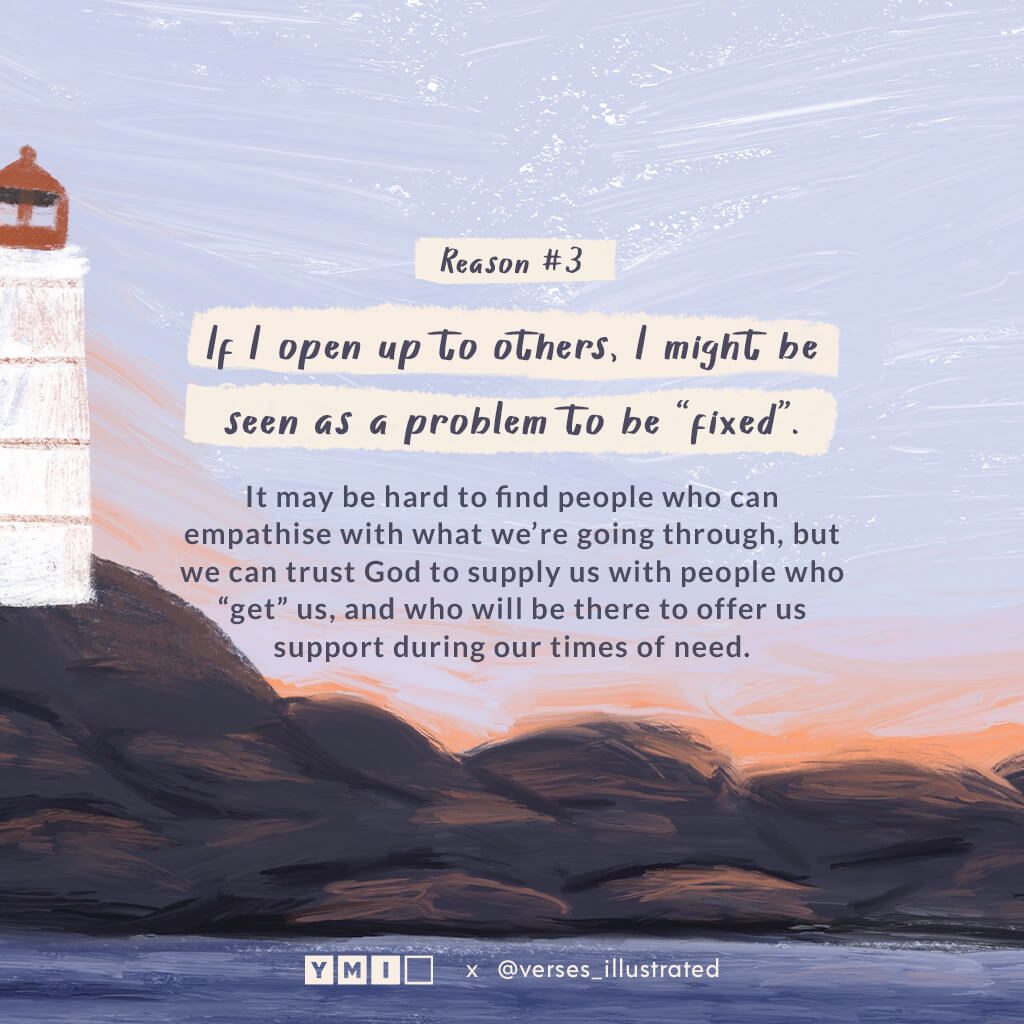
Perhaps your fear is that if you open up to others, they will see you as a problem to be “fixed” or will offer you endless solutions to your mental health struggle.
It may be hard to find friends who can empathise with what we’re going through, but we’re not made to do life alone. When we read the stories in the Bible, we see that every Biblical hero has a sidekick to help them with their tasks or journey with them–Moses had Aaron, David had Jonathan, and Paul had Timothy.
In the same way, there could be someone out there who can offer us support as we navigate our mental health journey. Not everyone will understand what we’re going through (and that’s alright too!), but we can also trust God to supply us with people who “get” us, and will be there for us when we need them to be.
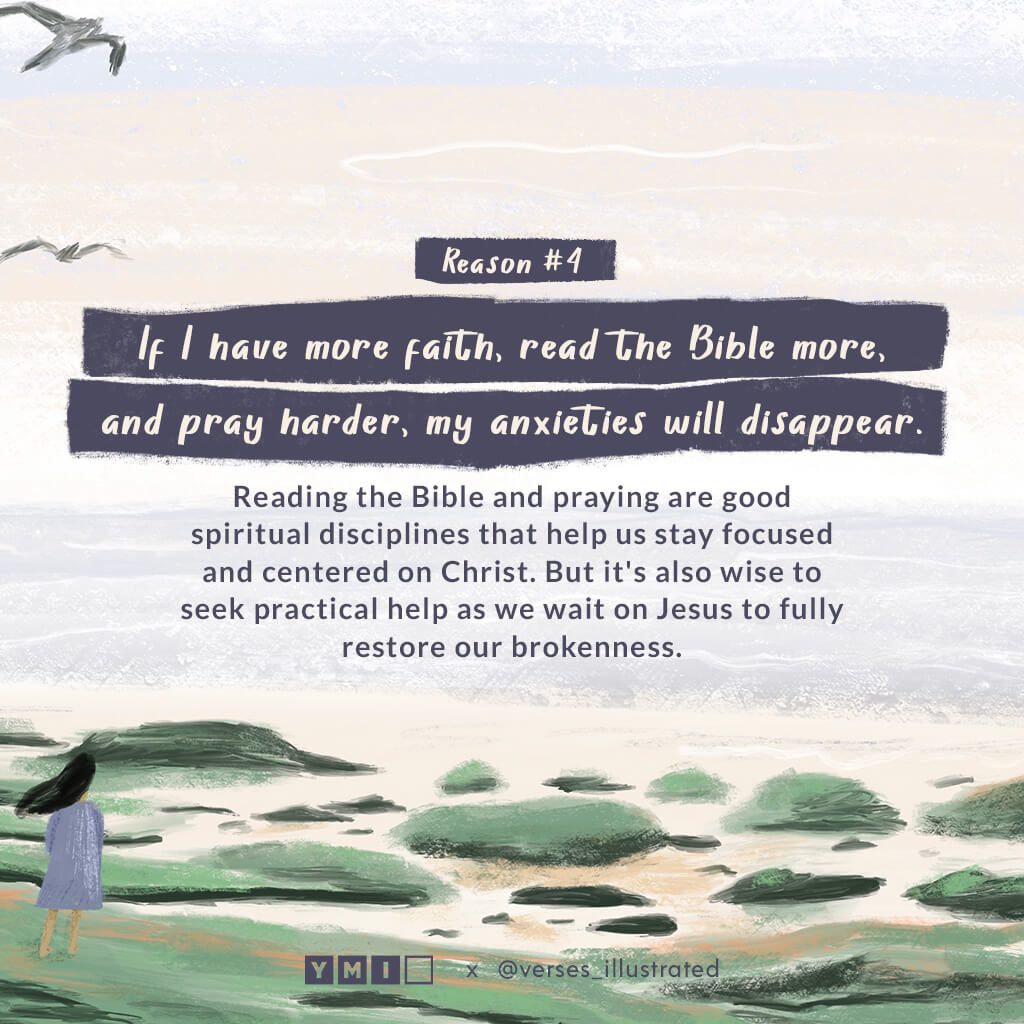
Maybe we’ve been taught that if we “pray harder, have more faith, read the Bible more”, then our mental health woes will go away. Or we’ve heard testimonies of people who have had their depression/anxiety lifted the moment they prayed. So we do all the above . . . except it isn’t working.
Sometimes, our mental health struggles have to do with our environment (it could be trauma and upheaval from our childhood), and these are things that can’t be readily overcome by simply reading more Scripture or having more faith.
This doesn’t mean that reading the Bible or praying doesn’t help at all–in fact, these are good spiritual disciplines that help us stay focused and centered on Christ, and shape the way we respond to our mental health struggles–but as we wait on Jesus to fully restore our brokenness, it’s also wise to seek practical help to work through our triggers so we can move towards mental wholeness.
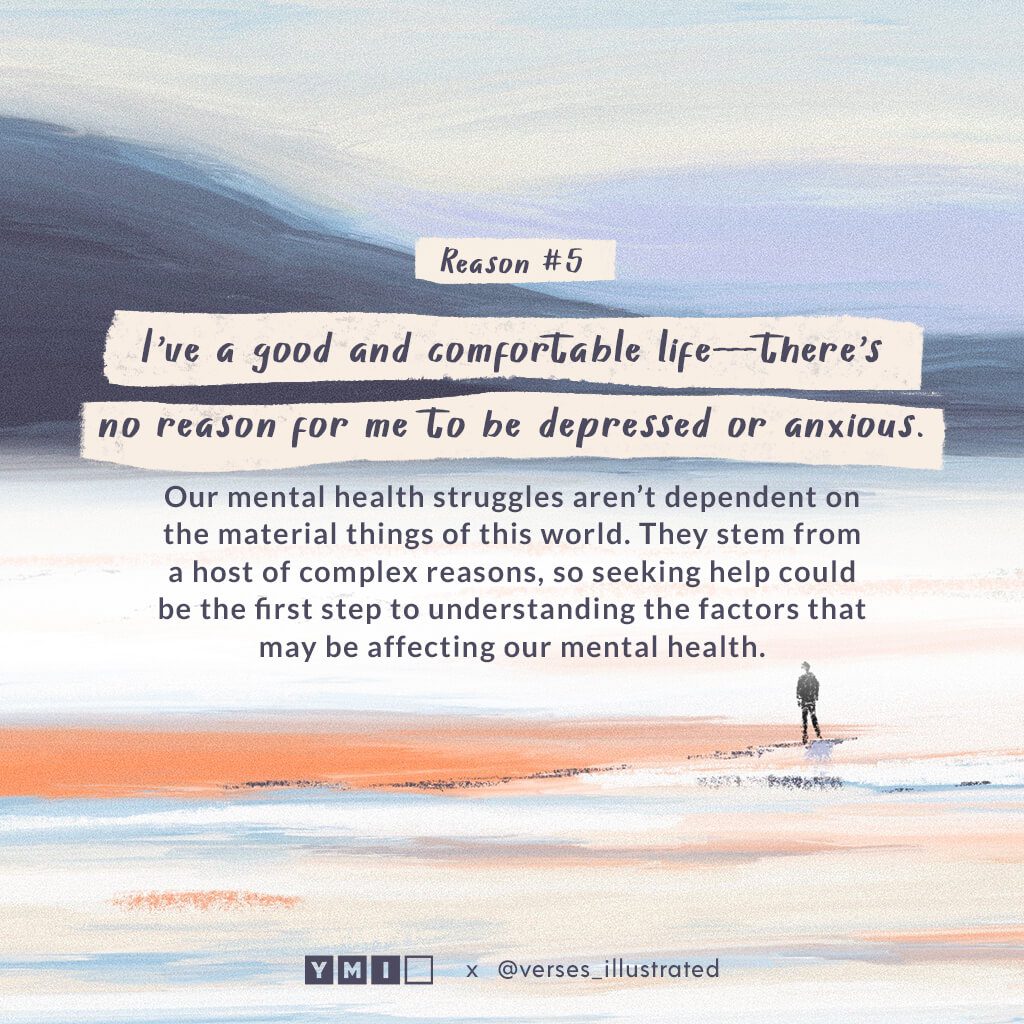
We’ve been told we’ve had a good life, we haven’t had to struggle to put food in our bellies or the clothes on our backs, so we’ve nothing to complain about.
In turn, we suppress our emotions whenever we feel sad, because hey, there’s nothing for us to be depressed or anxious about, right?
The thing is, we aren’t exempted from suffering in this life. When we read the Bible, we see the mighty warrior Elijah (1 Kings 19:4-14) going through periods of depression. He cried out to God, who slowly restored His soul.
Anxiety and depression transcends gender and socioeconomic background, and can affect anyone, whether we’ve come from a good home or otherwise. They stem from a host of complex reasons, so seeking help could be the first step to understanding the factors that may be affecting our mental health.
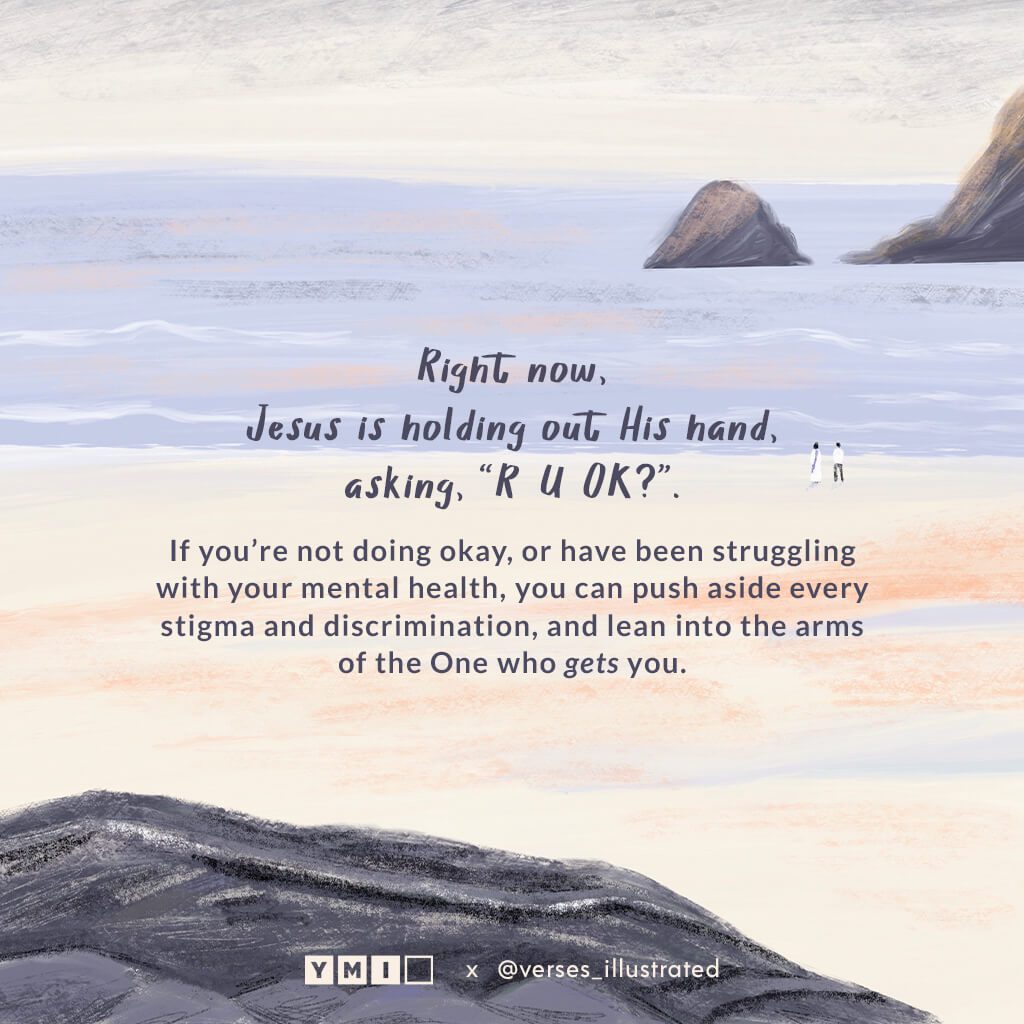
So, “R U OK?”.
The next time someone asks you this, know that however you choose to answer or whatever you wish you tell them, there’s nothing to be ashamed of with what you’re going through.
Above all, we have Jesus who gets us more than any friend or mental health professional, and He’s holding His hand out, asking, “R U OK?”, so we can push aside every stigma, discrimination, and judgement, and lean into the arms of the One who knows.
Back to Homepage

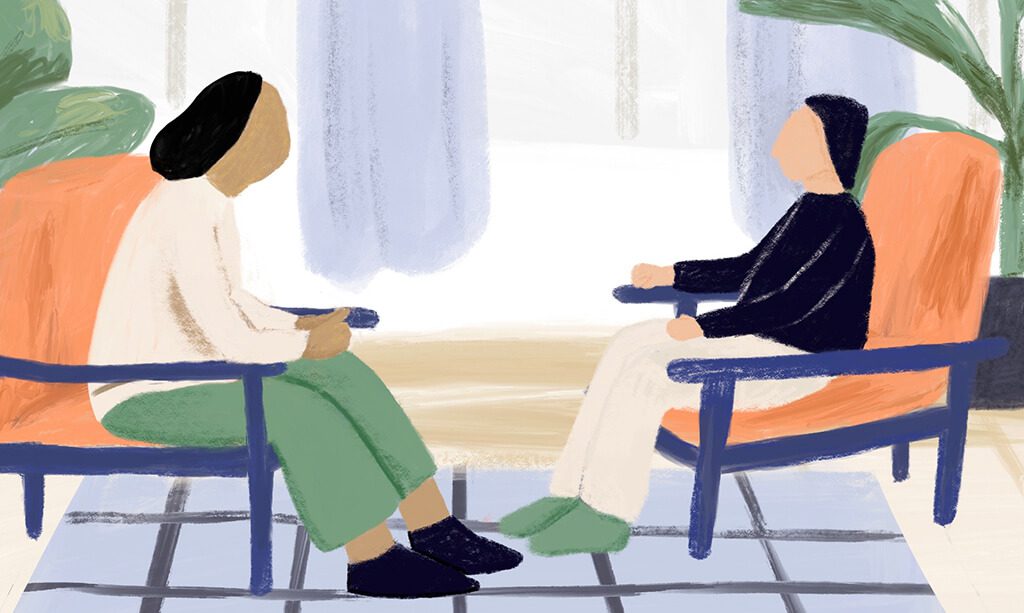








Leave a Reply
Want to join the discussion?Feel free to contribute!